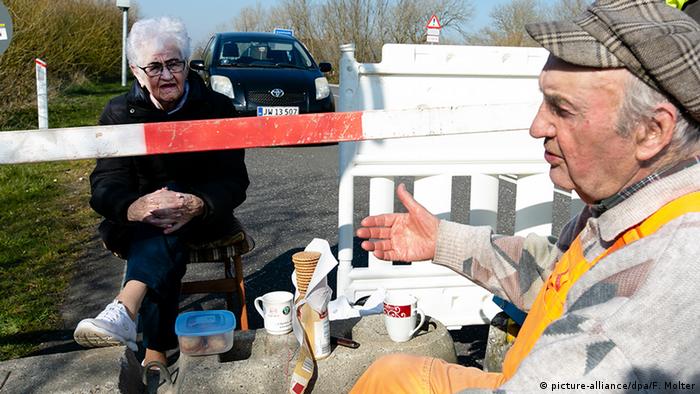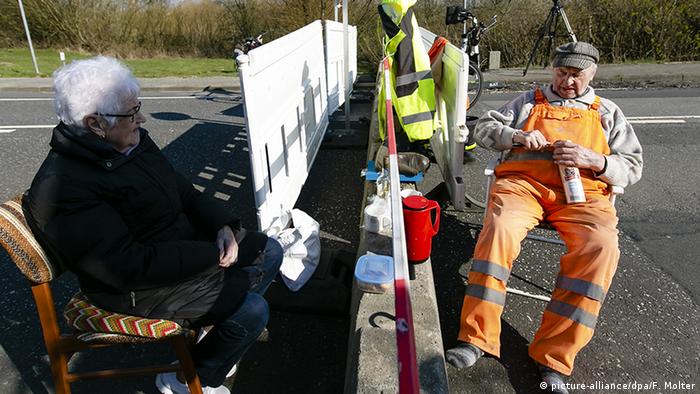Inga lives in Denmark. Karsten lives in Germany. Despite the coronavirus pandemic, they have not been deterred from meeting each other every day at the border — keeping a safe distance, of course.
Inga lives in Denmark. Karsten lives in Germany. The border between Germany and Denmark is now almost completely closed due to the worsening situation in both countries from the coronavirus outbreak. However, this hasn't deterred their love.
Each day, Inga Rasmussen, 85, and Karsten Tüchsen Hansen, 89, meet each other at the border to chat, eat lunch or share some biscuits and have a flask of coffee or Geele Köm — a popular spirit from the region.
"Cheers to the love," said Hansen as they toasted each other.
Normally they would embrace, kiss and hug. But now they must keep their distance.
The two sit on either side of the red-and-white barrier marking the border — on chairs they have brought with them from home. The pair have been meeting up every day at the closed border crossing at Aventoft.
Love knows no borders
Hansen lives in Süderlügum in Germany's Nordfriesland region, Rasmussen in the Danish town of Gallehus.
Hansen rides his e-bike from Süderlügum to his afternoon dates. Rasmussen drives her car to the border.
On March 14, Denmark closed large parts of the border to the German border state of Schleswig-Holstein. Two days later, Germany followed suit.
"It's sad, but we can't change it", said Rasmussen. The pair has frequently talked over the phone since the border closure and try their best to meet every day, not letting the pandemic affect their relationship.
The couple met two years ago purely by chance, they explained. Since March 13 last year, they have spent every day together.
"I am otherwise always with Karsten," said Rasmussen. But the time in between is already long, when you're alone, she added.
The couple hopes that by Easter they can visit each other again. They have also made plans for the future. When the restrictions are lifted —they would like to travel again.


Comments
Post a Comment